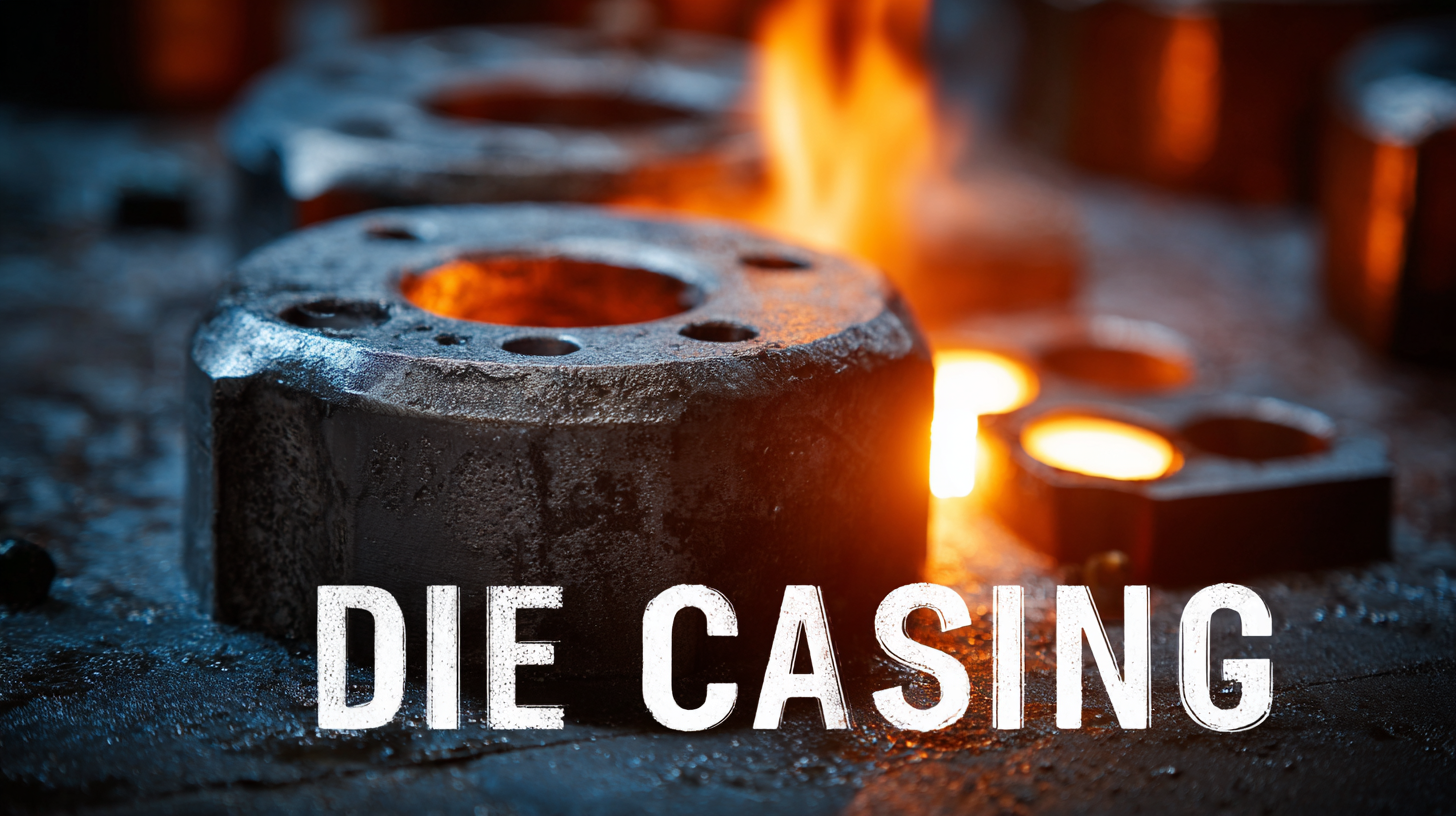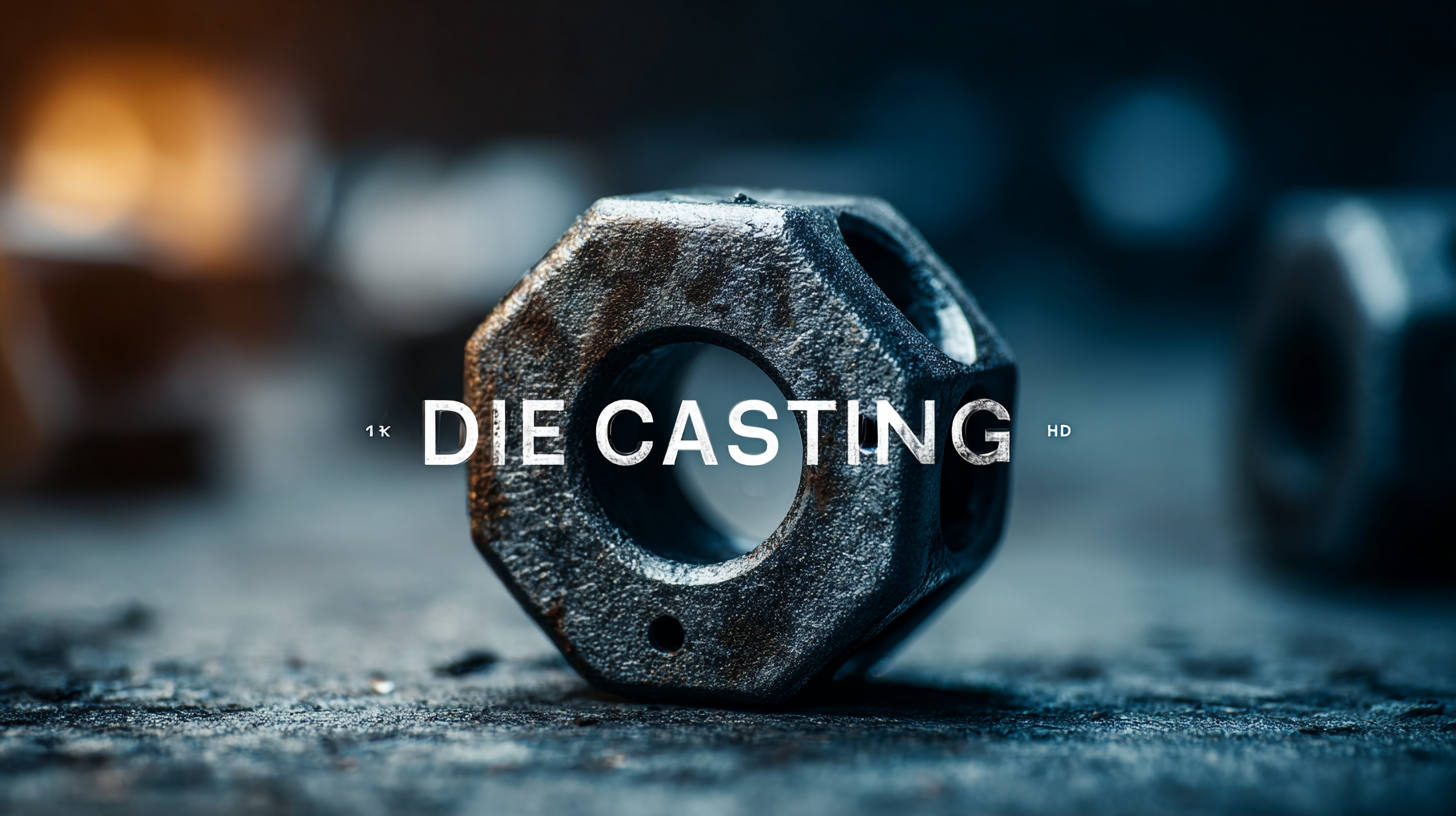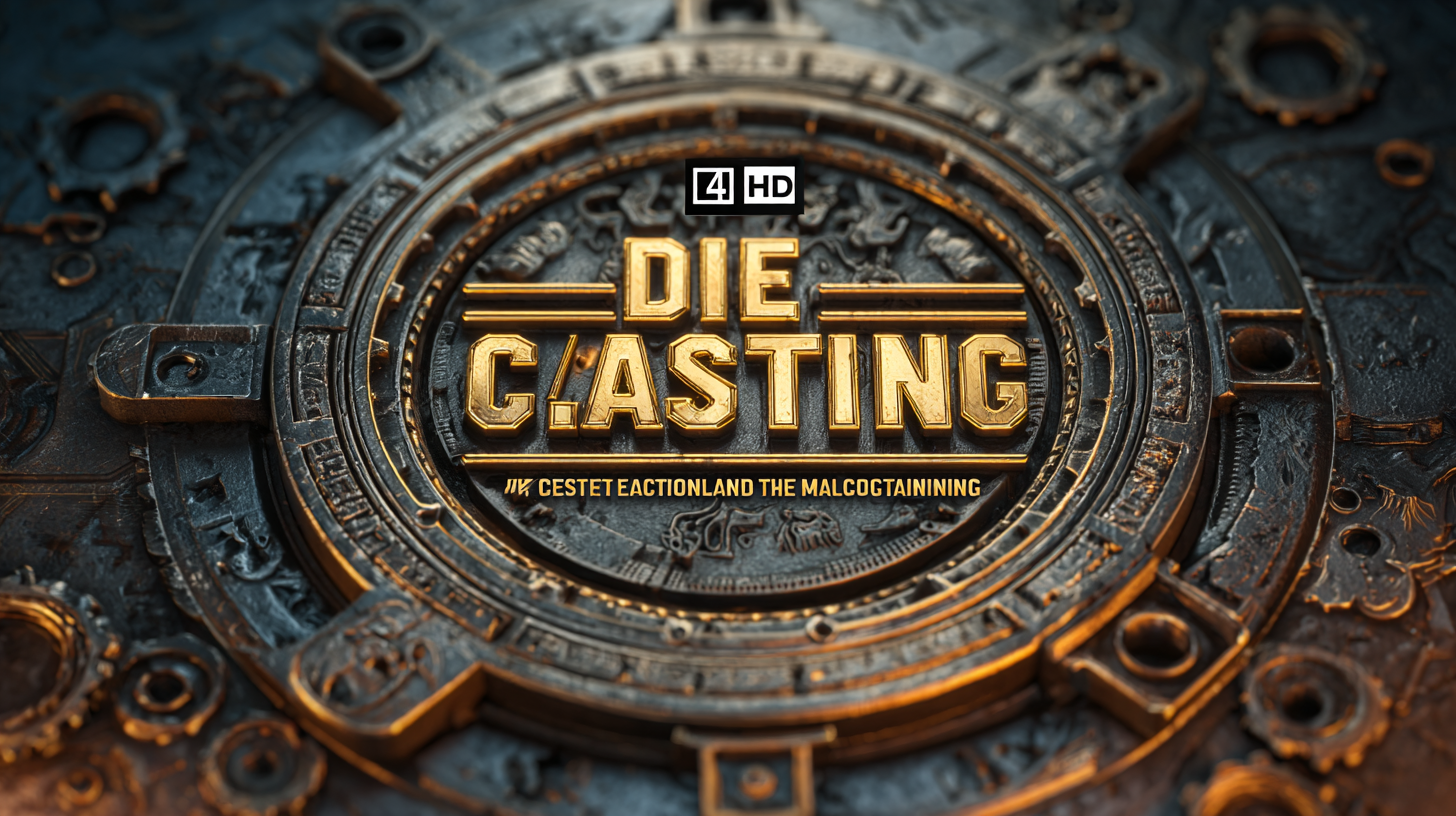

In the rapidly evolving landscape of modern manufacturing, Die Casting has emerged as a pivotal technology, underpinning the production of intricate and high-quality components across various industries. According to a recent report by Research and Markets, the global die casting market is expected to reach $93.8 billion by 2025, driven by increasing demand for lightweight and durable parts in sectors such as automotive, aerospace, and electronics. This surge in demand emphasizes the necessity for manufacturers to adopt the best die casting technologies available. Moreover, with advancements in automation and materials science, die casting processes have become more efficient, cost-effective, and environmentally friendly. In this blog, we will delve into the seven key reasons why the adoption of superior die casting technologies is essential for staying competitive and optimizing production capabilities in today’s manufacturing environment.

In today's competitive manufacturing landscape, high-quality die casting plays a pivotal role in achieving precision and efficiency. Die casting technology allows manufacturers to produce complex metal parts with intricate designs and tight tolerances. This precision is critical in various industries, including automotive, aerospace, and electronics, where even the slightest deviation can lead to significant operational issues and increased costs. By investing in advanced die casting processes, manufacturers can ensure that their products meet stringent quality standards while optimizing production speed and reducing waste.
Moreover, modern die casting technologies incorporate advanced materials and innovative casting techniques that further enhance the quality of the final products. The use of materials such as aluminum and magnesium not only improves strength and durability but also contributes to lightweight construction, which is highly desirable in many applications. As manufacturers seek to create products that are both high-performing and cost-effective, the importance of high-quality die casting becomes even more pronounced. This commitment to precision manufacturing not only meets market demands but also positions companies as leaders in their respective fields, driving growth and innovation.
In today’s rapidly evolving manufacturing landscape, evaluating die casting technologies hinges on key metrics that merge innovation with sustainability. The latest trends emphasize a data-driven approach, as evidenced by the growing importance of performance management tools that prioritize flexibility and continuous development. Companies must assess die casting technologies not merely on efficiency but through their contributions to sustainability initiatives. According to recent reports, sustainability is becoming an essential corporate imperative, pushing manufacturers towards adopting environmentally friendly practices that align with both regulatory standards and societal expectations.
Moreover, as the Additive Manufacturing sector demonstrates continual evolution, the integration of advanced technologies in die casting is vital. Metrics capturing operational efficiency, quality of output, and environmental impact will become critical in evaluating these technologies. The focus on low-carbon production options in industries such as iron and steel further underscores the need for manufacturers to adopt innovative solutions that minimize their carbon footprints. Embracing these essential strategies not only supports sustainable innovation but also positions companies competitively in the global market, particularly as prominent players like China lead the charge in advanced industry innovations.
Advanced die casting methods have revolutionized the manufacturing landscape, enhancing production efficiency significantly. According to a report by Industry Research, the global die casting market is expected to reach $87.28 billion by 2026, driven largely by innovations in casting technologies. These advancements have led to reduced cycle times and improved material usage, enabling manufacturers to meet increasing demand without compromising on quality. For instance, the use of automation in die casting processes can reduce labor costs by up to 30%, while simultaneously increasing precision and consistency.
Moreover, modern die casting techniques, such as high-pressure die casting and vacuum die casting, allow for the production of complex shapes with thinner walls and greater structural integrity. A study published in the Journal of Manufacturing Science and Engineering highlighted that these techniques can improve production efficiency by as much as 40% compared to traditional methods. Manufacturers are increasingly leveraging these technologies to enhance their competitiveness, reduce waste, and ultimately drive profitability in an ever-evolving market. The integration of advanced die casting methods not only streamlines operations but also paves the way for sustainability in manufacturing practices.
| Reason | Description | Impact on Production Efficiency |
|---|---|---|
| Cost Reduction | Advanced die casting reduces material waste and lowers manufacturing costs. | Increases profit margins by minimizing expenses. |
| Speed of Production | Modern die casting techniques enable faster production cycles. | Shortens lead times and increases output. |
| Quality Assurance | Enhanced technologies improve the precision and quality of castings. | Reduces rework and returns, ensuring customer satisfaction. |
| Flexibility in Design | Modern methods allow for complex shapes and designs. | Enables innovation and customization in products. |
| Environmental Impact | New technologies are more energy-efficient and sustainable. | Lowers carbon footprint and complies with regulations. |
| Automation Compatibility | Advanced die casting methods are easily integrated with automated systems. | Enhances operational efficiency and reduces labor costs. |
| Durability of Products | Die cast products are known for their strength and longevity. | Minimizes warranty claims and enhances brand reputation. |
In today’s rapidly evolving manufacturing landscape, digital transformation plays a crucial role in selecting top-tier die casting manufacturers. The integration of advanced technologies, such as artificial intelligence and data analytics, enhances manufacturing processes, enabling companies to achieve higher efficiency and precision. Manufacturers are increasingly leveraging digital tools to streamline operations, optimize resource allocation, and predict market demands, which are essential for meeting customer expectations in competitive markets.
Moreover, the digitalization of die casting technologies is reshaping traditional manufacturing methods. Companies that invest in these modern approaches not only improve product quality but also reduce production costs and lead times. By harnessing the power of digital transformation, manufacturers can quickly adapt to changing market dynamics and innovate their product offerings. The collaboration between leading tech firms and manufacturers is indicative of a broader trend where strategic partnerships foster the development of cutting-edge solutions, driving the industry forward.

Investing in the best die casting technologies is crucial for manufacturers aiming for long-term success. A recent report from MarketsandMarkets predicts that the global die casting market will reach $47.3 billion by 2026, growing at a compound annual growth rate (CAGR) of 7.0%. This growth is driven by increasing demands for lightweight components in industries such as automotive and aerospace, where die casting offers superior performance and efficiency. By choosing advanced die casting solutions, manufacturers can achieve lower production costs and higher quality outputs, ultimately enhancing their competitive edge.

Cost-benefit analysis reveals that high-quality die casting techniques can significantly reduce waste and improve the yield of materials used. According to a study by Research and Markets, optimizing die casting processes can lead to a 30% reduction in production costs. Furthermore, adopting innovative die casting technologies, such as automated systems and advanced alloys, not only enhances productivity but also minimizes energy consumption, aligning with global sustainability goals. Thus, investing in the best die casting solutions not only promises immediate cost savings but also ensures operational efficiency and environmental responsibility in the long run.